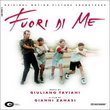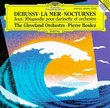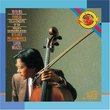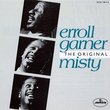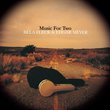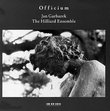| All Artists: Sherrill Milnes, Carl Orff, Katherine Edmonds Puszati, Lorna Cooke de Varon, Seiji Ozawa, Boston Symphony Orchestra, Evelyn Mandac, Stanley Kolk Title: Orff: Carmina Burana Members Wishing: 0 Total Copies: 0 Label: RCA Release Date: 9/15/1992 Genre: Classical Style: Opera & Classical Vocal Number of Discs: 1 SwapaCD Credits: 1 UPCs: 078635653328, 007863565332 |
Search - Sherrill Milnes, Carl Orff, Katherine Edmonds Puszati :: Orff: Carmina Burana
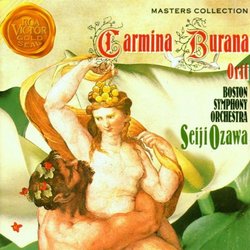 | Sherrill Milnes, Carl Orff, Katherine Edmonds Puszati Orff: Carmina Burana Genre: Classical |
Larger Image |
CD DetailsSimilar CDs
Similarly Requested CDs
|
CD ReviewsPerfection in sound FrKurt Messick | Bloomington, IN USA | 09/30/2005 (5 out of 5 stars) "-- Carmina Burana -- Carmina Burana is a large German manuscript from which Carl Orff drew his famous modern setting. The manuscript was discovered in a Benedictine monastery in the mid-19th century in Bavaria, and subsequently named Carmina Burana. It is very extensive, with lyrics from Occitania, France, England, Scotland, Catalonia, Castile, Germany and beyond. Many texts are in Latin. However, the majority of the texts do not include melodies (which is not uncommon for compositions of the time). These have to be recreated based on the structure of texts or other cues (such as pitch), or other markers alluding to well-known medieval melodies from other sources. The include of Gregorian chant, and other musical styles such as the music of Troubadours, Trouveres, and Minnesingers can be heard distinctly. In that tradition, many of these songs are far from sacred texts, but rather can be ribald and scathing at times in their wit toward the world in which they were composed. Yet there are also graceful love songs and other wonderful pieces here, too. Carl Orff took many of the pieces and put them together as a complete set with new orchestrations - it was a lofty ambition, as could be seen from the subtitle Orff gave to the piece: Cantiones profanae contoribus et choris cantandae comitantibus instrumentis atque imaginibus magicis (which roughly translates into 'Secular [or even profane] songs for solo vocalist and choir with instruments and magical pictures'). Orff made statements about seeking the spiritual in this music, but in fact neither the lyrics nor the music is really church-appropriate. -- This Performance -- This recording was originally made in 1969, and such is the power of this performance that it has remained a standard favourite ever since, remaining 'in print' in vinyl ever since its first release, and being masterfully transferred to disc in 1992 as a RCA Victor Gold Seal recording (a relatively rare designation denoting high quality in performance and technical recording aspects). Orff's Carmina Burana has extensive personnel requirements, met with the following: * The Boston Symphony Orchestra, Seiji Ozawa conducting * New England Conservator Chorus, Lorna Cooke de Varon conducting * Children's Chorus of the New England Conservatory, Katherine Edmonds Pusztai conducting * Evenly Mandac, soprano * Stanley Kolk, tenor * Sherrill Milnes, baritone This recording continues to get rave reviews. According to music commentator Adrian Tan, 'Already his rendition of Orff's masterpiece with the Boston Symphony (on RCA) has been acclaimed as one of his best performances to date,' when comparing this recording with Ozawa's later conducting of the same piece with the Berlin Philharmonic. David Hurwitz writes, 'the famous opening number had the right sense of inexorability and a palpable air of menace (with a much fresher sounding and word-wise chorus).' Ozawa gained acclaim as one of the world's best conductors; the soloists on this recording are also perfectly matched to their material. This disc should be in the collection of every music lover. " Unbelievable dmm | 01/10/2007 (5 out of 5 stars) "First, don't get any other version without reading the fine print. This one has the full orchestra, full adult chorus, full children's chorus, and world-class soloists that are called for in the original score. Most other versions cut corners. Trust me, you don't want "Carmina Burana Lite." Second, I was blown away by this work, and I am not generally a fan of 20th century music. The opening chorus is famous, and rightly so, but it really comes into its own when heard in context, especially when it is reprised as the ending chorus. Third, the first time you listen to it, you simply MUST listen to the whole thing uninterrupted, at good volume with top-quality headphones or speakers. Otherwise, you won't be doing the work and the recording justice." See My Review Under The "Remastered" Version! Bertram christmas | Boston ,MA. | 04/24/2005 (5 out of 5 stars) "To paraphrase, this 1969 Boston Sym."Carmina" is FAR preferable to Ozawa's much later performance with the Berlin Philharmonic on Philips. In short, this is THE "Carmina" to get!"
|


